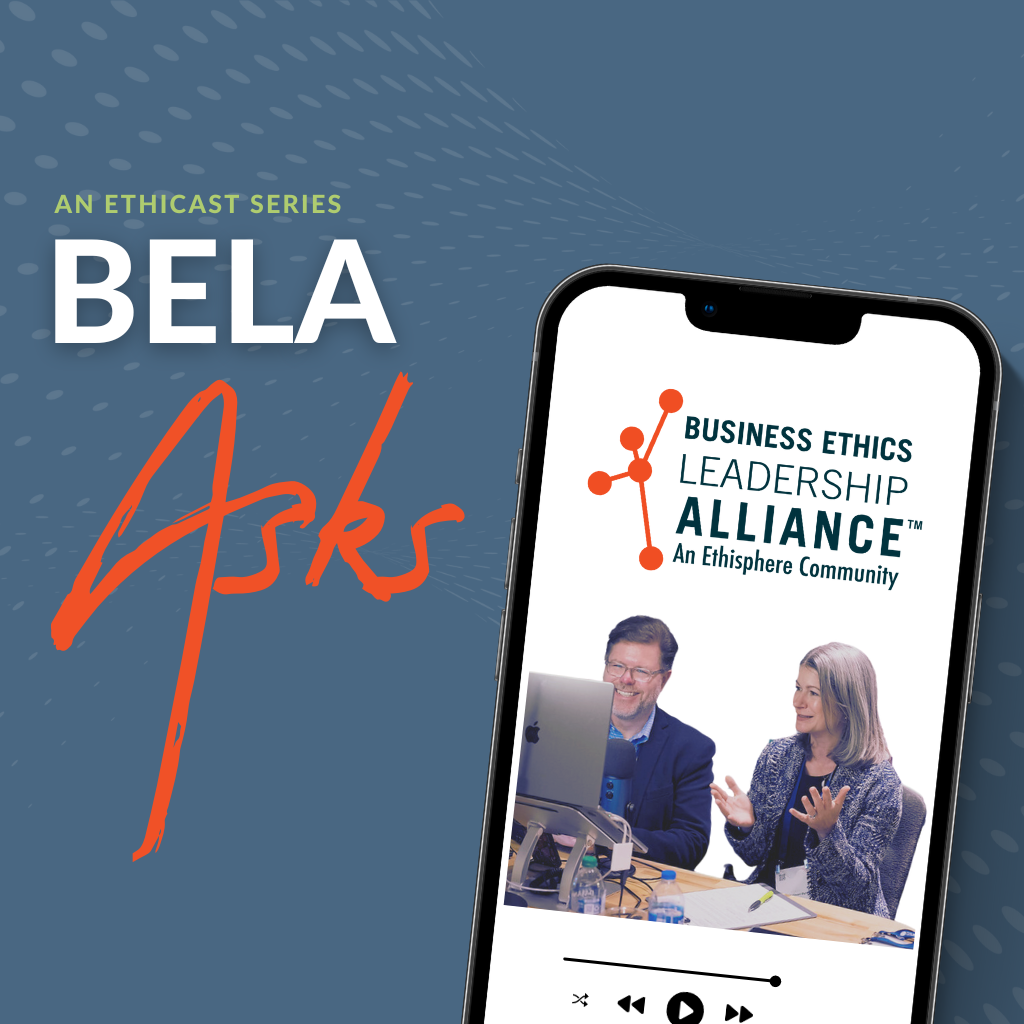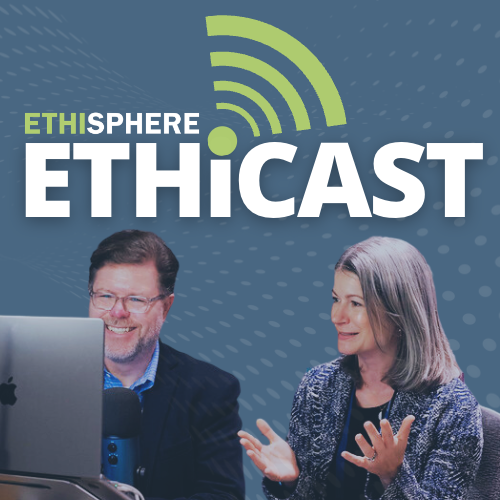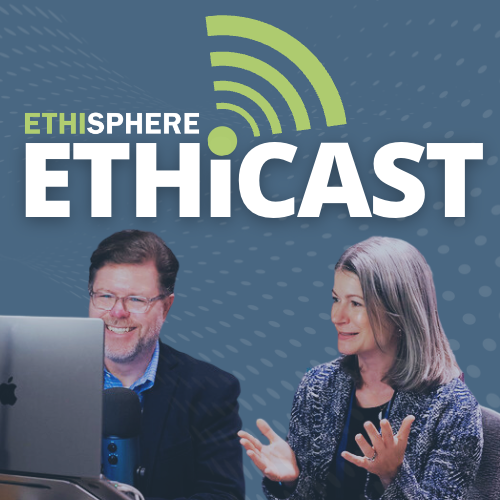[00:00:00] Speaker A: Hi, everyone. The Business Ethics Leadership alliance has questions and we have answers. I'm your host, Bill Coffin. Welcome to another Bella Asks episode of the Ethicast.
One of the best benefits of being a member of the Business Ethics Leadership alliance, or bella, is is that if you have any questions at all about ethics and compliance, you can submit them to Bella's concierge service and one of our internal experts will provide an answer and direct you to a helpful resource for more information. Many of these requests speak to broad challenges facing Bella members and by extension, the wider ethics and compliance profession. That's why we're using this show to thematically respond to high level questions from the Bella community. Joining us once again to answer those questions is Bella chair Erica Salmon Byrne. Erica, thank you so much for joining us once again. It's terrific to see you.
[00:00:56] Speaker B: Oh, Bill, it's my pleasure. I'm delighted that our Bella community keeps having questions so that I get a chance to come back and answer them.
[00:01:02] Speaker A: Well, our next question is an enforcement question and it reads, what does a good corrective action framework policy include?
[00:01:09] Speaker B: This is a great question, and I say that for a couple of reasons. One, it tells me that this particular Bella member is spending a lot of time thinking about organizational justice, because the reason to have a corrective action framework is to be able to make sure that like, situations are treated alike, no matter where they occur in the business. So whether it is business unit to business unit, whether it is function to function, whether it is senior person to junior person, doesn't matter, right? Doesn't matter who it is, where they are, what they do, what the function is. You're creating a corrective action framework because you're trying to treat every single situation the same. And so kudos to the Bella member who asked this question because that's exactly what we want to see Bella members doing is thinking about organizational justice and also thinking seriously about justice's recommendation that you make sure the rules are the same for everyone. Right. I mean, I've, I've gotten a little bit out of the habit, Bill, of quoting George Orwell regularly, but I can't help but revisit the Animal Farm quote. Right? Are all the animals equal or some of the animals a little bit more equal than others? And a good corrective action framework addresses that concern. So thinking about what goes into a corrective action framework, the first thing you need to ask yourself is who's involved in discipline? So is my disciplinary process the kind of process where I spend, where I have my investigators? You know, do the investigation, decide on the substantiation or not, and then send it off to HR and the business partners to decide what the right kind of corrective action or disciplinary response is likely to be. You're handing that piece of things off. And so you really need to make sure that you outline very carefully your decision trees and the various pieces that go into it. Or is it. I have a discipline committee. Well, the discipline committee is, you know, going to be something that is a little bit different. The discipline committee approach is you're going to be in a room and you can debate, is this the same as this situation? You have access to the information that is in your system already about how you've treated things. So first question that you need to ask yourself is, how detailed does my corrective action framework need to be? Because am I in the room when the decision is being made, or am I not in the room when the decision is being made? And then the second thing is to look at the data you already have. So most of us have a database already of things that have come up across our organizations, the kinds of issues we tend to run into and some of the different things that we have done in response to those issues. So get the data you already have mine, your case management system and your Hriss, and I do say Hriss, because many of the companies that we work with have more than one. And ask yourself, you know, what are the trends that I see in these Hriss and what kinds of pieces can I potentially pull out that will help inform my framework? And then what you want to do is you want to have tiers. So What's a Tier 1 issue? What's a Tier 2 issue? What's a Tier 3 issue? Who's involved in deciding that? What do those different tiers mean? What happens to recidivists? Right. First time issue, second time issue, third time issue. Those are some of the factors that you want to consider when you're building your framework.
[00:04:25] Speaker A: Well, Erica, I learned something new every single time you come on the show. So thank you very much for joining us once again and, and especially thank you for answering this question on behalf of the Bella community.
[00:04:33] Speaker B: Oh, Bill, it is my pleasure. And for the people out there who are listening, who are wondering about this particular topic, we have lots of guidance on what good disciplinary matrices look like in the Bella member hub and in our data platform, the Sphere. So be sure to reach out and log in and we'll make sure that you have all the answers you need.
[00:04:50] Speaker A: To learn more about Bella, please Visit@the sphere.com Bella to request guest access to the member Resource Hub and to speak with the Bella Engagement Director. And if you have a question that you would like answered on Bella Asks, be sure to use the Bella Concierge Service and we'll get to your question just as soon as we can. I'm Bill Coffin, and this has been a special Bella Asks episode of the Ethacast. For more episodes, please visit the Ethisphere YouTube
[email protected] ethisphere and if this is your first time enjoying the show, please make sure to like and subscribe on YouTube, Apple Podcasts, or Spotify. Thanks for joining us, and until next time, remember, strong ethics is good business.


